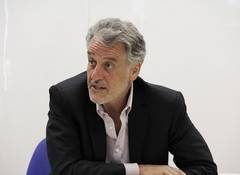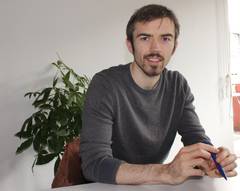

THESEUS Awards 2014
THESEUS Award for Outstanding Research on European Integration
The THESEUS Award for Outstanding Research on European Integration 2014 goes to Prof. Dr. Loukas Tsoukalis, Hellenic Foundation for European & Foreign Policy (ELIAMEP), Athens
Prof. Dr. Loukas Tsoukalis is President of the Hellenic Foundation for European & Foreign Policy (ELIAMEP). He lectures as Professor of European Integration at the University of Athens and is Visiting Professor at King’s College in London and the College of Europe in Bruges. Prior to his current offices, the Greek professor taught for many years at Oxford University (University Lecturer in International Relations and Fellow of St. Catherine’s College and St. Antony’s College). He was Professor at the European Institute of the London School of Economics and Political Science (LSE) and taught at the European University Institute in Florence as well as at Sciences Po in Paris. Tsoukalis was also Special Adviser to the President of the European Commission. He studied economics and international relations at the University of Manchester, the College of Europe in Bruges, and the University of Oxford where he obtained his doctoral degree.
Tsoukalis is author of numerous publications, among them “The New European Economy” (1997) and “What Kind of Europe?” (2005), both published by Oxford University Press (OUP) and translated into several languages. He is joint editor and author of the concluding chapter of “The Delphic Oracle on Europe: Is there a Future for the European Union?” (OUP, 2011) and author of the Annual Review Lecture (2011) of the Journal of Common Market Studies. This year, he wrote a paper entitled “The Unhappy State of the Union: Europe Needs a New Grand Bargain” which has already been translated into five other languages and circulated by leading European think tanks. He also gave the prestigious Cyril Foster Lecture 2014, the most important annual guest lecture of Oxford University in international relations. Tsoukalis furthermore regularly contributes to the Sunday edition of the newspaper Kathimerini (“The Daily”), a daily newspaper published in Athens.
THESEUS Award for Promising Research on European Integration
Joseph Lacey is rewarded with the THESEUS Promising Award for his work “Must Europe be Swiss? On the Idea of a Voting Space and the Possibility of a Multilingual Demos”.
Joseph Lacey is a PhD researcher at European University Institute (EUI) in Florence, Italy. He furthermore works as Visiting Student Research Collaborator in Politics at Princeton University in the USA. Lacey holds three Master’s degrees: Research, Political and Social Sciences (EUI), Philosophy (University College Dublin) and Philosophy, Political Philosophy (KU Leuven). His Bachelor degree equally belonged to the field of Philosophy (Milltown Institute, Dublin). The ambitious scientist published numerous works in peer-reviewed journals as well as edited volumes, among them “Must Europe be Swiss? On the Idea of a Voting Space and the Possibility of a Multilingual Demos” (2014), British Journal of Political Science, or “Learning from Switzerland. The Possibility of and Limitations to Comparison with the European Union” (2014) in Democracy in the European Union: A Contribution from the Swiss Perspective, edited by Daniel Kübler and Nenad Stojanovic. Both publications arose from findings of his PhD research. Lacey furthermore authored a textbook for adolescents entitled “Energy Revolution: Climate Change and our Post-carbon Future” (2009). He was awarded with the Fulbright Schuman Award to attend Princeton University during the academic year 2013-2014.
Article: “Must Europe be Swiss? On the Idea of a Voting Space and the Possibility of a Multilingual Demos”
Joseph Lacey’s thesis “Democratic Representation for a Multilateral Europe: A Comparative Analysis” analyses how the centripetal and legitimating forces of democracy work in political systems characterised by strong centrifugal tendencies relating to territorial identity and the communicative barriers of multilingualism. The analysis takes the EU as primary case study and compares its political system to the multilingual democratic federal states of Belgium and Switzerland. One part of Joseph Lacey’s work is the article “Must Europe be Swiss? On the Idea of a Voting Space and the Possibility of a Multilingual Demos”, which has already been published in the British Journal of Political Science. It presents several institutional arrangements that would allow the EU to operate with greater democratic legitimacy without sacrificing its multilingual make-up. Lacey argues that linguistic diversity can be a permanent feature of any democratic community as long as there is a unified and robust voting space that provides a common intentional object, around which distinct public spheres can aesthetically organize their political discourse.
The THESEUS Award Ceremony took place during the Latvian EU Pre-Presidency Ceremony on 4 December 2014 in Riga.

